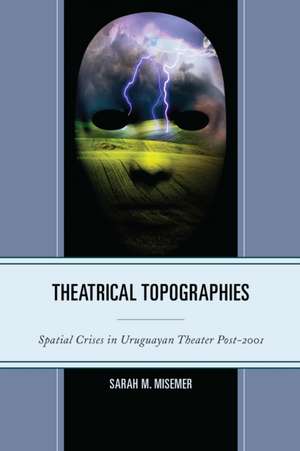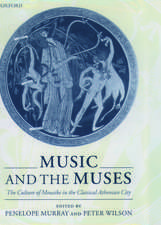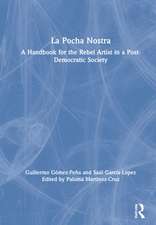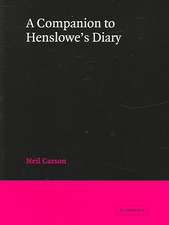Theatrical Topographies
Autor Sarah M. Misemeren Limba Engleză Hardback – 31 mai 2017
Preț: 689.55 lei
Preț vechi: 895.51 lei
-23% Nou
Puncte Express: 1034
Preț estimativ în valută:
131.97€ • 136.60$ • 111.54£
131.97€ • 136.60$ • 111.54£
Carte tipărită la comandă
Livrare economică 05-19 martie
Preluare comenzi: 021 569.72.76
Specificații
ISBN-13: 9781611487978
ISBN-10: 1611487978
Pagini: 242
Dimensiuni: 236 x 160 x 22 mm
Greutate: 0.64 kg
Editura: Bucknell University Press
ISBN-10: 1611487978
Pagini: 242
Dimensiuni: 236 x 160 x 22 mm
Greutate: 0.64 kg
Editura: Bucknell University Press
Cuprins
Acknowledgments
List of Illustrations
Introduction: Spatial Crises and Theatrical Topographies p.1
Chapter 1: Textual Landscapes: Postdramatic Triptychs, Bifurcations, and Bio-Politics in Gabriel Peveroni¿s Trilogy
Chapter 2: Alternative Cartographies: Marianella Morenäs Women¿s Spaces and Journeys
Chapter 3: Deluges, Holocausts, and Neo-Fascism: Exposing the Gaps through Performance Space in Santiago Sanguinetti¿s in Ararat and Nuremberg
Chapter 4: Mapmaking and Wayfinding in Gabriel Calderón¿s Staged Worlds
Conclusion: Sergio Blanco¿s Kassandra Complex: Transvestite Performances and Clothing Landscapes
Bibliography
Index
About the Author
Notă biografică
By Sarah M. Misemer
Descriere
This book on contemporary theater and performance examines how independent theater in Uruguay is marked by points of crisis as shifting networks of power among economic, political, historical, legal, cultural, literary, and gender worlds collide.























